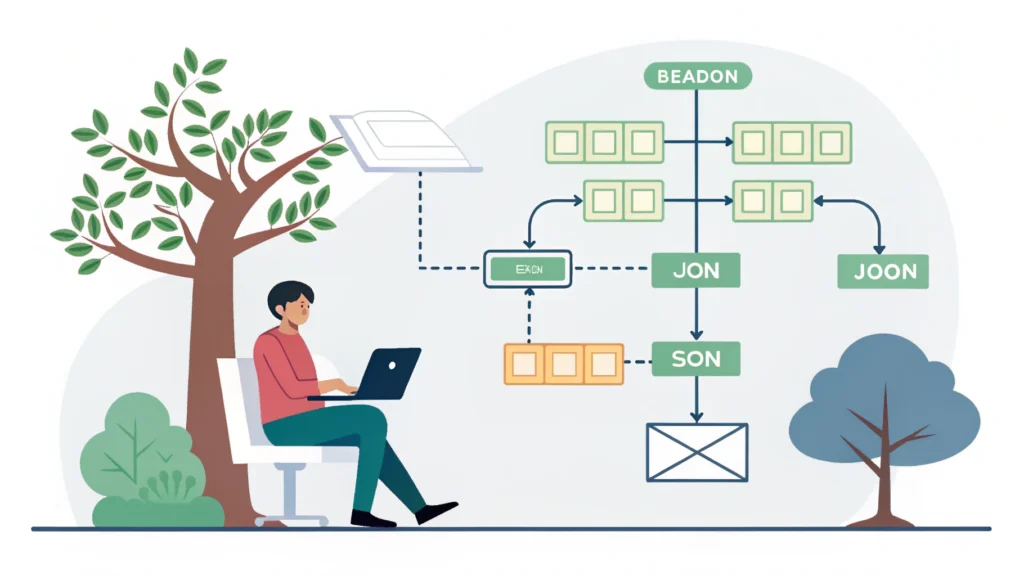Introduction
Web accessibility is crucial for creating inclusive digital experiences. It ensures that people with disabilities can access and interact with web content. For developers and tech enthusiasts, understanding and implementing accessibility standards is essential. In this article, we will explore some of the top web accessibility testing tools that can help you identify and fix accessibility issues on your websites.
Why Accessibility Matters
Web accessibility is not just a legal requirement; it’s also an ethical obligation. According to the World Health Organization, about 15% of the world’s population lives with some form of disability. By making websites accessible, you not only comply with regulations like the ADA and WCAG but also improve user experience for everyone.
Top Web Accessibility Testing Tools
Here are some essential tools that you should consider integrating into your development workflow:
1. WAVE
WAVE (Web Accessibility Evaluation Tool) is an easy-to-use online tool that provides visual feedback about the accessibility of your web content. It identifies errors and potential issues directly on your website.
How to Use WAVE:
- Visit WAVE’s website.
- Enter your website URL into the provided field.
- Click on the WAVE It! button.
- Review the feedback, which includes errors, alerts, and features.
2. Axe
Axe is a robust accessibility testing engine that helps you catch accessibility issues during development. It can be integrated into your browser’s DevTools or used in automated testing environments.
How to Use Axe:
- Install the Axe browser extension.
- Open your browser’s DevTools and navigate to the Axe panel.
- Run the accessibility test and analyze the results.
3. Lighthouse
Lighthouse is an open-source tool integrated into Chrome DevTools that audits performance, accessibility, and SEO. It provides detailed reports and recommendations.
How to Use Lighthouse:
- Open Chrome DevTools and navigate to the Lighthouse tab.
- Select the Accessibility checkbox.
- Click the Generate report button.
- Review the accessibility score and suggestions for improvement.
4. Tenon.io
Tenon is a powerful accessibility testing tool that can be integrated into your development workflow. It provides comprehensive reports and works well with CI/CD pipelines.
How to Use Tenon:
- Sign up at Tenon.io.
- Input the URL you want to test or upload your HTML files.
- Review the results and suggested fixes.
5. Accessibility Insights
This tool is designed to help developers find and fix accessibility issues quickly. It offers both automated and guided tests.
How to Use Accessibility Insights:
- Download Accessibility Insights from their website.
- Open the application and navigate to your website.
- Run the automated tests and follow the guided tests.
Best Practices for Web Accessibility
While using these tools, keep the following best practices in mind:
- Use semantic HTML elements to ensure proper structure.
- Provide alternative text for images and non-text content.
- Ensure sufficient color contrast using tools like our Color Picker.
- Test accessibility across different devices and screen readers.
FAQs
What is web accessibility?
Web accessibility refers to the inclusive practice of making websites usable for people of all abilities and disabilities.
Why should I test for accessibility?
Testing for accessibility ensures that all users can navigate and interact with your website, which enhances user experience and compliance with legal requirements.
Are accessibility tools 100% accurate?
No tool is perfect; they can help identify issues but human evaluation is essential for comprehensive accessibility assessments.
Conclusion
Web accessibility testing is an integral part of the development process. By using these tools and adhering to best practices, you can create a more inclusive web experience for everyone. Explore more tools at WebToolsLab to enhance your web development skills.
